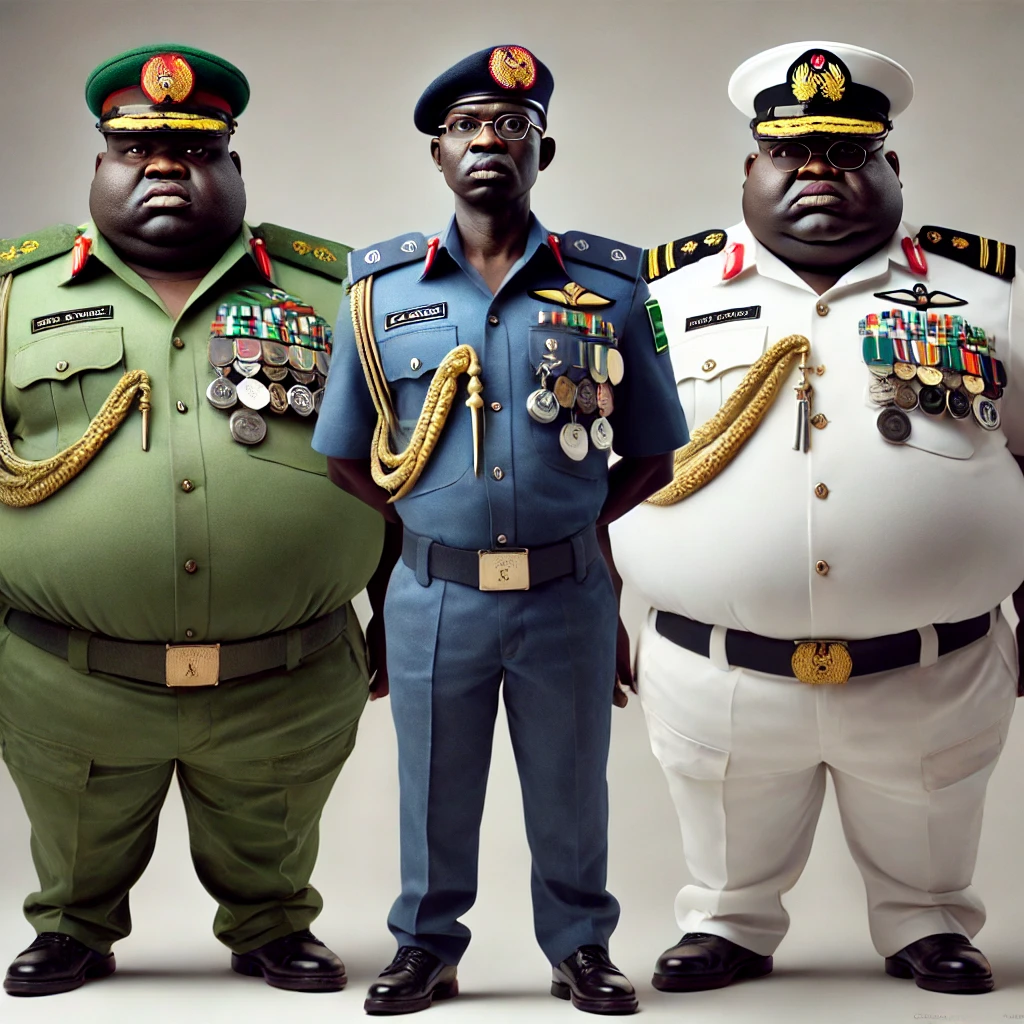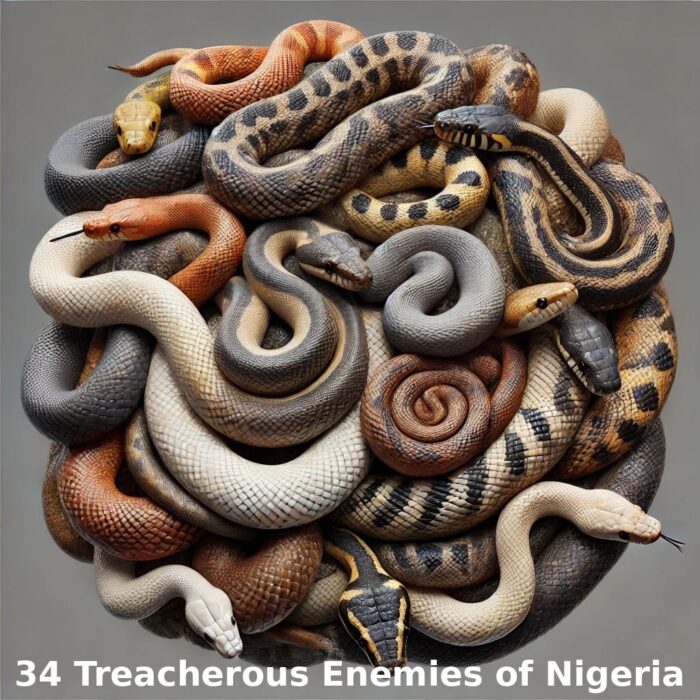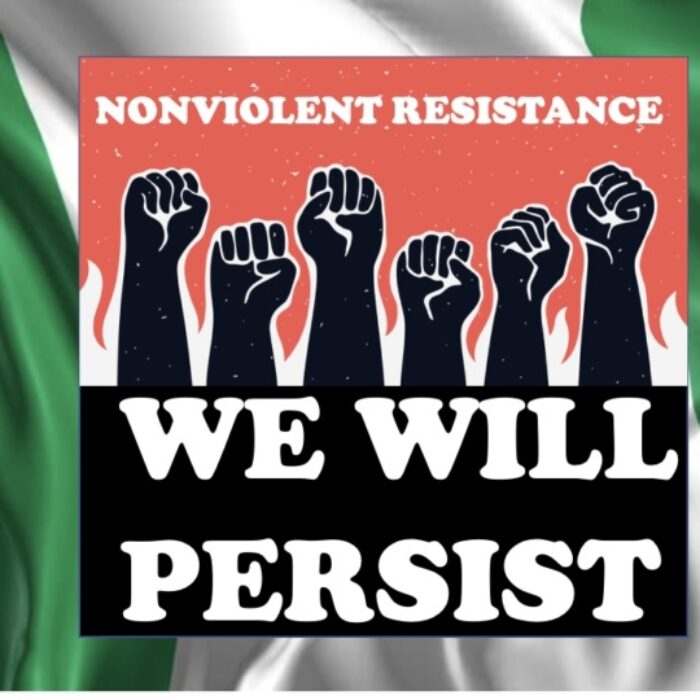By the Editorial Board
We are witnessing it in real time—a new world order taking shape, not through diplomacy or international law, but through raw power, nationalism, and unilateral aggression.
Across the globe, we see powerful nations shedding the pretense of collective security and cooperation, opting instead for military and economic strength as the ultimate bargaining chip.
The days when borders were sacrosanct are fading fast; today, resources and strategic territories are up for grabs, and only nations with the will and capacity to defend themselves will survive unscathed.
We have witnessed Russia forcibly seize territory in Ukraine and China asserts its military dominance in the South China Sea. The U.S. now threatens to seize control of the Panama Canal, Canada, Greenland and potentially Gaza, and across Africa, regional powers are quietly strengthening their armed forces—not just for defense, but to extend their influence and project power.
In this new era of military aggression and geopolitical power struggles, we see clearly that any country without a strong, disciplined, and combat-ready military is openly inviting exploitation, humiliation, or even outright conquest.
This should be a wake-up call for the Nigerian Armed Forces. As Africa’s most populous nation and one of its largest economies, the nation stands exposed to both external and internal threats—whether from jihadist insurgencies, regional separatist movements, foreign-backed mercenaries, or powerful nations seeking to exploit its vast resources.
But are the Nigerian Armed Forces prepared for the looming conflicts on the horizon? Is the military combat-ready?
The Nigerian military, particularly the rank and file, embodies the courage and resilience of the nation. It has played a vital role in peacekeeping missions across Africa, from restoring order in Liberia to supporting democratic transitions in Sierra Leone. These efforts have showcased the military’s commitment to regional stability and its capacity to uphold peace beyond Nigeria’s borders.
However, the institution now grapples with severe challenges under its current leadership, struggling to adapt to an increasingly volatile global landscape. Issues of mismanagement, lack of strategic vision, and internal inefficiencies have weakened the military’s effectiveness, raising concerns about its ability to address both domestic and international security threats in the years ahead.
From our assessment, the brutal truth is undeniable: Nigerian military is neither combat ready nor capable of winning wars.
What should be a formidable force defending Nigeria’s sovereignty has decayed into a corrupt, incompetent, and neglected institution. Instead of protecting the nation, it has become a liability—bloated, dysfunctional, decadent, and more skilled at squandering defense budgets than securing the country.
It is said that the fish rots from the head, and President Tinubu, as the Commander-in-Chief of the Armed Forces of Nigeria, bears ultimate responsibility for the military’s glaring lack of combat readiness.
Under his leadership, the armed forces have been plagued by corruption, mismanagement, and a failure to address critical issues such as inadequate equipment, poor training, physical unfitness, and low morale among troops.
Instead of enforcing accountability and strategic reforms, Tinubu has allowed the military’s leadership to indulge in opulence (more on this later) while frontline soldiers face insurgents with malfunctioning weapons and insufficient support.
This neglect not only endangers national security but also exposes the president’s failure to uphold his constitutional duty to protect the nation.
For decades, the Nigerian Armed Forces have failed to defeat Boko Haram—a ragtag group of terrorists armed with second-hand rifles, Toyota Hilux trucks, and ideological zeal.
They have sometimes embarrassed themselves in United Nations peacekeeping missions and repeatedly shown a shocking lack of discipline, physical fitness, and even basic professionalism, with incidents of corruption and sexual misconduct further tarnishing their reputation.
The military’s top brass, once battle-hardened professionals, have become overfed, overpaid, and excessively pampered, prioritizing personal luxury and wealth over national security and combat readiness. It has become a lavish retirement club for billionaire generals, where self-indulgence takes precedence over the duty to defend the nation.
Ironically, Nigerian generals take pride in the military’s 31st position out of 145 countries in the Global Firepower Index, but this ranking is meaningless in real combat.
The GF index measures troop numbers, equipment stockpiles, and budgets while ignoring combat readiness, leadership, discipline, and battlefield performance. A nation’s strength is tested on the battlefield, not on a ranking list, making Nigeria’s GFP standing nothing more than an illusion.
In an age where only the strong will thrive, Nigeria remains defenseless—not because it lacks resources and manpower, but because the military has been systematically weakened from within.
How did Nigeria reach this point? What has gone wrong within the military? And is there a path back to combat readiness and the will to fight and win?
To address these strategic questions, we interviewed key military personnel and experts—granting anonymity to protect their identities—and analyzed thousands of documents from both the defense industry and published military research and local media.
Politicians Keep Military Leaders Dumb, Happy, and Passive
Nigeria’s military was once a force that commanded fear and respect across Africa. But that legacy has crumbled as politicians mastered a more insidious tactic—neutralizing and defanging the military by flooding its ranks with wealth and privilege.
The quickest way to strip a once-formidable force of its power and keep it confined to the barracks is to seduce it with luxury, transforming soldiers into complacent elites more invested in their comfort than their duty.
President Tinubu’s recent approval of lavish retirement benefits for senior military officers, including bulletproof SUVs, luxury sedans, annual foreign medical allowances of up to $20,000, and a retinue of domestic staff, is a glaring example of misplaced priorities in a country grappling with economic hardship and security crises. Top officers have become political clients, not military strategists.
Instead of incentivizing competence and combat readiness, these benefits reinforce a culture where military officers prioritize personal luxury over professional duty, undermining the very security they are meant to uphold.
Nigeria is the only nation where incompetent military leaders are rewarded not with demotions, but with promotions, contracts, and mansions. A senior general today is not expected to lead troops into battle; he is expected to sign procurement deals, secure defense budgets, and attend lavish political events.
Fighting Boko Haram: The Never-Ending Battle
Boko Haram, a scrappy terrorist group with second-hand rifles and motorcycles, has successfully turned the Nigerian military into a global laughingstock.
Despite having access to billions in defense budgets, better weaponry, and supposed elite training, the military has yet to decisively defeat an enemy that doesn’t even have a mechanized unit or functioning air force.
The glaring incompetence of the Nigerian armed forces forced then-President Goodluck Jonathan, under the direction of his National Security Advisor, Sambo Dasuki, to make a controversial decision: outsourcing the fight against Boko Haram to foreign mercenaries.
Among these were South African-based private military companies like Executive Outcomes (EO) and Specialized Tasks, Training, Equipment and Protection (STTEP). Predictably, this strategy also failed—dressing up a flawed approach with foreign mercenaries didn’t change the underlying dysfunction within Nigeria’s security apparatus.
This unprecedented reliance on mercenaries not only exposed the military’s inability to effectively combat the insurgency but also underscored the extent of corruption, poor leadership, and lack of operational readiness within Nigeria’s defense establishment.
Let’s be clear: within the Nigerian armed forces, there are exceptional senior officers and rank-and-file soldiers who have served this nation with unwavering courage, professionalism, and patriotism.
Their sacrifices stand as enduring symbols of honor, and their dedication reflects the highest ideals of service and loyalty. A grateful nation will forever cherish their contributions, recognizing them as pillars of integrity in the face of immense challenges.
Indiscipline and Physical Unfitness
Military discipline is the backbone of any competent fighting force, but in Nigeria, it’s more of a suggestion than a requirement. Soldiers have been caught extorting civilians at checkpoints, commanders involved in illegally trafficking mined diamonds, getting drunk on duty, and even selling weapons to the same terrorists they are supposed to be fighting.
Physical fitness remains a critical concern within the Nigerian Army, with a noticeable portion of the officer corps displaying a troubling lack of agility. Many appear more like sluggish, bloated sumo wrestlers than the disciplined, well-conditioned soldiers expected to lead a capable fighting force.
Despite explicit directives from the former Chief of Army Staff, Lieutenant General Faruk Yahaya, urging officers to maintain rigorous fitness regimens and a healthy weight, obesity remains prevalent within the ranks. How do you chase terrorists through the Sambisa Forest when you start panting after climbing a flight of stairs?
The persistence of this issue suggests a failure in both discipline and enforcement, raising serious questions about combat readiness. At this rate, rather than intensive training, some officers might need a prescription for Ozempic to bring them up to basic fitness standards.
Military Equipment: Museum Artifacts
A combat-ready military should have modern and well-maintained equipment. Nigeria’s military, however, treats its weapons and vehicles like heirlooms from a forgotten war. Many of the tanks look like they were last serviced during the Biafra War, and the rifles often jam at the mere sight of an enemy.
Soldiers frequently complain about going into battle with Boko Haram with insufficient intelligence and ammunition, and malfunctioning weapons. At this rate, they might as well be taking on Boko Haram armed with nothing but the Senate President’s gavel.
The navy isn’t much better. Nigerian naval vessels seem to spend more time docked, rusting away, than patrolling the nation’s waters. Pirates and oil thieves operate with such impunity in the Niger Delta that one might suspect they have an informal membership in the Nigerian Navy Officers’ Mess.
The Generals: A League of Billionaire Landlords and Contractors
The senior leadership of the Nigerian military enjoys a level of wealth that is suspiciously high for a country where the troops are often underpaid or forced to buy their own uniforms. Many generals have perfected the strategy of “fighting” corruption by becoming its greatest beneficiaries.
Both during and after their military service, they “acquire” prime real estate as landlords, secure high-value contracts despite questionable qualifications, and are linked to businesses that leverage their influence for personal gain.
Many of these ventures operate through complex networks of shadow companies, often obscuring the true extent of their involvement and ownership.
They cruise around in taxpayer-funded luxury SUVs, live in palatial mansions staffed with numerous domestic workers, and attend exclusive parties all year round—because, apparently, indulging generals is considered a strategy in procuring their loyalty and keeping the peace.
The defense budget, which could be used to buy new weapons, train soldiers, and improve intelligence gathering, often disappears into the abyss of “classified expenditures.” This is a cesspool of corruption.
Meanwhile, troops in the field are left wondering why their rations consist of expired biscuits and sachets of water. Still wondering why we’re losing the war against terrorism?
Tribalism, Nepotism and Mediocrity: The Path to the Top
In any serious military, promotions are based on merit, experience, and battlefield competence. In Nigeria, they are alleged to be based on tribe, connections, and political favoritism.
The Nigerian Defence Academy (NDA) used to produce some of Africa’s finest officers. Now, it functions more like a social club for the well-connected. To get in, it doesn’t matter how smart or strong you are—what matters is who your father is and which ethnic group or region of the country you belong to.
The outcome of this mediocrity is incompetence. The Nigerian Air Force, for example, has a unique interpretation of precision airstrikes. Their pilots can’t seem to differentiate between enemy hideouts and innocent villages. It’s as if their targeting systems are powered by blind luck rather than training, expertise and technology.
And when they do manage to hit something, it’s often a wedding party or a refugee camp. Meanwhile, Boko Haram fighters roam freely, as if they were conducting military drills in broad daylight.
Strategic Imperatives to Overhaul the Nigerian Military for Combat Readiness
1. Purge Corrupt and Inept Leadership – Conduct a complete overhaul of military leadership, forcibly retiring all officers with records of misconduct, incompetence, or political entanglements. Promotions should be based strictly on merit, combat performance, and strategic thinking, not tribalism, nepotism, or political loyalty.
2. Mandatory Combat Fitness Standards – Enforce strict physical and combat readiness tests for all personnel, including senior officers. Any officer—regardless of rank—who fails physical and tactical assessments should be discharged or reassigned to non-combat roles. The era of obese, desk-bound generals must end.
3. End Luxury Perks & Redirect Funds to Equipment & Training – Abolish lavish peacetime benefits like bulletproof SUVs, foreign medical allowances, and excessive security details for retired officers. Redirect these funds toward modernizing weaponry, training elite combat units, and improving soldier welfare on the frontlines.
4. Create a Highly Mobile, Special Forces-Led Military Doctrine – Shift from a bloated, slow-moving military to an agile, tech-driven force led by well-trained special forces. Prioritize drone warfare, intelligence-driven operations, and rapid deployment strike teams to neutralize insurgents before they entrench themselves.
5. Severe Penalties for Indiscipline & War Profiteering – Institute military tribunals with strict enforcement against indiscipline, extortion, arms sales to terrorists, and operational failures. Any soldier or officer caught engaging in misconduct, looting, or abandoning duty should face immediate court-martial and public prosecution to restore discipline and accountability.
The Bottom Line
The Nigerian military stands at a crossroads between its intended role as a guardian of national security and the troubling reality of being perceived as a haven for incompetent generals enriching themselves at the nation’s expense.
While threats from insurgents, bandits, and external forces persist, the military’s readiness is undermined by corruption, mismanagement, and a glaring disconnect between leadership and frontline soldiers.
The lavish lifestyles of high-ranking officers contrast sharply with the underfunded, ill-equipped troops, raising serious questions about priorities and commitment to national defense.
For Nigeria to secure its future, the military must shed the image of a retirement club and reclaim its integrity as a disciplined, combat-ready force. This requires transparent leadership, proper resource allocation, and genuine investment in the welfare and training of soldiers.
Without these changes, the military risks not only failing in its constitutional duty but also eroding public trust, leaving the nation vulnerable to both internal and external threats.




